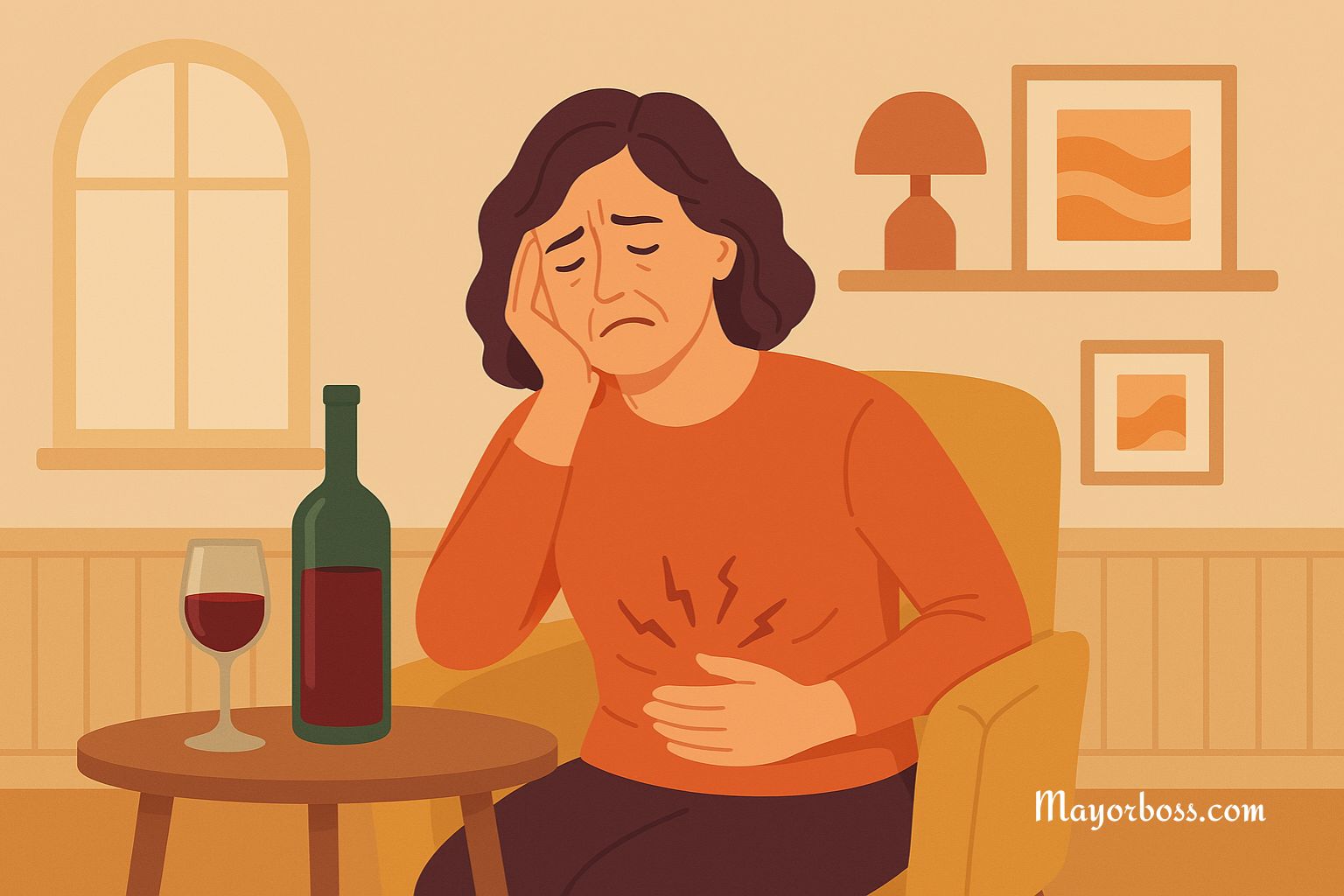How Alcohol Affects the Stomach
Alcohol can affect almost every part of your body, and your stomach is no exception. While an occasional drink may not cause noticeable harm, regular or heavy drinking can damage the stomach in serious ways.

Irritates the Stomach Lining
When alcohol reaches your stomach, it irritates the lining. The stomach has a protective layer of mucus that shields it from its own acid. Alcohol can weaken this barrier, making the lining more sensitive and inflamed.1 This condition is called gastritis—and it can cause symptoms like:
Some people may also vomit blood or pass black stools if the irritation leads to bleeding.
Increases Acid Production
Some evidence suggests that alcohol stimulates your stomach to produce more acid than usual. Too much acid can worsen gastritis and increase the risk of ulcers, which are open sores in the lining of the stomach or upper intestine. These ulcers can bleed and cause severe pain, especially on an empty stomach.2
If left untreated, stomach ulcers can lead to more serious complications, including infections or blockages in the digestive tract.
Slows Digestion
Alcohol can slow down how quickly your stomach empties food into your small intestine. This delay in digestion can lead to bloating, gas, and discomfort. It can also make you feel overly full, even if you’ve eaten only a small amount.
In some cases, slow stomach emptying can contribute to acid reflux—a condition where acid from the stomach backs up into the esophagus, causing heartburn and irritation.
Weakens the Lower Esophageal Sphincter
The lower esophageal sphincter (LES) is a muscle that acts like a valve between your stomach and esophagus. It keeps stomach acid from flowing upward. Alcohol relaxes this muscle, making it easier for acid to escape into the esophagus. This can trigger or worsen gastroesophageal reflux disease (GERD).
Over time, frequent acid reflux can damage the esophagus and increase the risk of a condition called Barrett’s esophagus, which may raise the risk of esophageal cancer.
Affects Nutrient Absorption
Chronic alcohol use can interfere with how your stomach absorbs nutrients. The damage to the stomach lining and reduced digestive function can impair your ability to absorb:
- Vitamin B12
- Folate
- Iron
- Protein
Deficiencies in these nutrients can lead to fatigue, weakness, nerve damage, and even anemia.
Increases Risk of Stomach Cancer
Long-term alcohol consumption is causally linked to an increased risk of stomach cancer.3 Alcohol may cause long-term inflammation, which can damage the DNA of stomach cells. In some people, especially those with other risk factors like Helicobacter pylori infection or a family history of cancer, alcohol can speed up the development of abnormal cells in the stomach lining.
Can Worsen Existing Conditions
If you already have a digestive condition like gastritis, ulcers, IBS (irritable bowel syndrome), or celiac disease, alcohol can worsen your symptoms. Even small amounts may cause pain or digestive upset. For people with these conditions, it’s often recommended to limit or avoid alcohol altogether.
Symptoms
If alcohol is affecting your stomach, you might notice:
- Ongoing indigestion or heartburn
- Frequent nausea or vomiting
- Stomach cramps or bloating
- Blood in vomit or stool
- Loss of appetite
- Unexplained weight loss
If you experience any of these symptoms regularly, it’s important to speak with a healthcare provider.
How to Protect Your Stomach
You don’t have to give up alcohol completely to protect your stomach, but moderation is key. Here are some tips:
- Limit alcohol to no more than one drink per day for women and two for men
- Avoid drinking on an empty stomach
- Drink water between alcoholic beverages
- Avoid alcohol if you have gastritis or ulcers
- Talk to your doctor if you have digestive symptoms that don’t go away
Final Thoughts
Alcohol has a direct effect on the stomach. It irritates the lining, increases acid production, slows digestion, and interferes with nutrient absorption. Long-term heavy use can lead to serious conditions like ulcers, chronic gastritis, and even stomach cancer.
Protecting your stomach starts with awareness and moderation. If you notice ongoing stomach problems and regularly consume alcohol, it may be time to evaluate your drinking habits and seek medical guidance.
